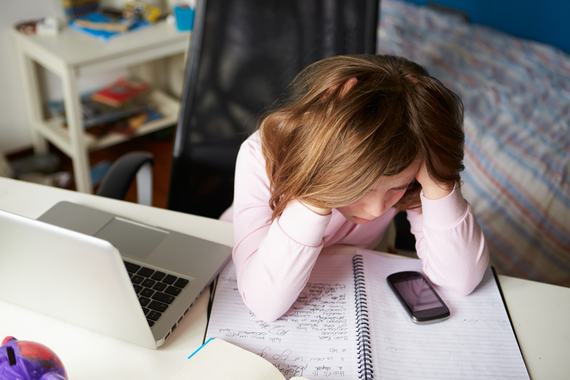 Silent treatment, grunting, “I'm fine”, bedroom retreat, “don't want to go to school”… The list goes on, but what is normal child/adolescent behaviour and what is a sign that your child is unhappy or scared in school? Dr. Dan Olweus considered typical characterises of children who are bullied and this can go some way to pre-empting your child being victimised.
Silent treatment, grunting, “I'm fine”, bedroom retreat, “don't want to go to school”… The list goes on, but what is normal child/adolescent behaviour and what is a sign that your child is unhappy or scared in school? Dr. Dan Olweus considered typical characterises of children who are bullied and this can go some way to pre-empting your child being victimised.
The typical victims are seen to be passive or submissive, are cautious, sensitive, quiet, withdrawn and shy. They are often anxious, insecure, unhappy and have low self-esteem. They often do not have a single good friend and relate better to adults than to peers. If they are boys, they may be physically weaker than their peers.
In my experience, when a child is suffering in any form they want you to know what is going on in their worlds, but they don't want to be the ones to tell you. They just want us, as parents or guardians, to know. Or they can't find the words to explain their world, it's a struggle enough for them to make sense of it.
Some clear signs and symptoms of bullying to look for are:
- Cuts, bruises, scratches
- Headaches, stomach aches
- Damaged possessions
- “Missing” possessions that need to be replaced
The stomach ache and headache ones are interesting. I have worked with parents whose children have been through the GP and hospital service, to only see the pattern emerging: Illnesses that appear on a Sunday evening and disappear in a Friday afternoon. They aren't making it up, they genuinely feel that way, but it is in response to an anxiety or fear of what the day holds for them. Think of the nervous flyer, who is camped out in the airport bathroom before a flight.
These symptoms in isolation may be nothing to worry about and as I will always say, you know your child best, but be watchful of the following:
- Withdrawal and/or shyness
- Anxiety
- Depression
- Aggression
- Changes in eating or sleeping habits (e.g., nightmares)
- No longer wanting to participate in activities they once enjoyed
- Beginning to bully siblings or even harming pets (all part of their need to redress power balance)
- Self harm
- Suddenly changing friends
- Not wanting to go to school
- Changing method of getting to school (e.g. changing walking route, wanting to be driven instead of riding the bus)
- Drop in grades
No child should be anxious or scared going to school, and we must open up to the possibility that they may need the right line of questioning, very gentle probing at the end of the day to let them know they can tell us (and we won't fly off the handle and make it worse..!).








